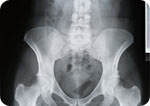
Magnesium boosts bone health in teenage girls
Monday, February 19, 2007 by: M.T. Whitney
Tags: children's health, magnesium, bone health
- CLOT SHOT PLANDEMIC UNFOLDING: Fibrous, rubbery clots caused by covid injections have prion-like seeding activity
- Widespread social and economic unrest: Steve Quayle issues urgent financial warning of imminent asset collapse in new interview with Mike Adams
- DEATH by VACCINE or face PRISON time: Canadian Freedom Convoy leaders CONVICTED for protesting forced vaccination during the Covid Plandemic
- How to detox from metals falling out of the sky
- Aerosolized bioweapons? Strange “diploid biomasses” falling out of the sky in Florida captured under the microscope
- How Israeli military-connected corporations are secretly controlling your online privacy
- How the peanut allergy epidemic was fueled by faulty science and institutional arrogance
- “Rockefeller Medicine Men”: Today’s healthcare crisis stems from the creation of the American medical establishment
- Analysis: The coming economic collapse, a mass uprising and Trump's three secret weapons to halt the growing revolt
- Kiss Your Genetic Privacy Good-Bye! 23andMe Gets Green Light to Sell Your Intimate Genetic Details to Anyone They Want
- Thimerosal is 50 percent MERCURY and NO it has NOT been removed from vaccines - that was a BIG FAT LIE the CDC told vax skeptics to keep them vaxxed up and dying
- Mike Adams releases country western hit single: Goin’ Back in Time is Comin’ Home
- Global financial Ponzi scheme collapses in real time as markets plummet, Mike Adams and Steve Quayle warn of impending chaos
- EU takes aim at Elon Musk's X with potential $1 billion fine under Digital Services Act
- Defunding DEADLY mRNA jabs: Government funding for mRNA technology being scrutinized and sidelined until proven "safe and effective" for real
- European Court of Justice: Healthcare professionals who promoted or administered COVID-19 vaccines are CRIMINALLY LIABLE for any harm caused
- Washington State expands hate crime bill but ignores left-wing violence against Tesla owners
- New York governor signs controversial gun control measure, sparking Second Amendment concerns
- Aerosolized bioweapons? Strange “diploid biomasses” falling out of the sky in Florida captured under the microscope
- European Court of Justice: Healthcare professionals who promoted or administered COVID-19 vaccines are CRIMINALLY LIABLE for any harm caused
- Newly released JFK files reveal Pentagon's role in creating Lyme disease and covid in the same lab
- Analysis: The coming economic collapse, a mass uprising and Trump's three secret weapons to halt the growing revolt
- FBI imposed gag order on agents to silence Hunter Biden laptop truth before 2020 election, new chat logs reveal
- Britain’s descent into police state censorship: Parents raided for questioning their daughter’s school system online
- “Project Aldrin”: Senate probes Meta's alleged censorship dealings with China
- Kiss Your Genetic Privacy Good-Bye! 23andMe Gets Green Light to Sell Your Intimate Genetic Details to Anyone They Want
- Oncologist warns of ‘terrifyingly aggressive’ cancers in children, linked to immune suppression from COVID vaccines
- Mike Adams releases country western hit single: Goin’ Back in Time is Comin’ Home
- Utah governor allows ban on LGBT pride flags in public buildings and schools, will take effect without his signature
- AI-powered forecasting model proves more accurate than traditional systems at predicting the weather
- When antibiotics are unavailable, natural ANTIMICROBIAL compounds become essential first line defenses against infection
- German researchers find link between mRNA vaccines and GENETIC CHANGES that precede CANCER and AUTOIMMUNE DISORDERS
- Defunding DEADLY mRNA jabs: Government funding for mRNA technology being scrutinized and sidelined until proven "safe and effective" for real
- The Health Ranger releases “Vaccine Zombie” song and music video, using AI-animated zombies for the music video
- Dr. Mary Talley Bowden drops bombshells about children being permanently damaged by mRNA jabs during Tucker Carlson interview
- The hidden war above: Chemtrails, HAARP and the battle for planetary control
- Newly released JFK files reveal Pentagon's role in creating Lyme disease and covid in the same lab
- California's social media censorship law struck down: A victory for free speech or a threat to online safety?
- The Health Ranger releases “Vaccine Zombie” song and music video, using AI-animated zombies for the music video
- Dr. Mike Yeadon releases 15-minute testimony - WATCH - about genocidal intent of COVID “vaccines”
- EPA advisor admits the agency is funneling billions to climate groups ahead of Trump’s return to White House
- Rep. Nancy Mace introduces bill to ban biological males from female facilities on federal property
- Mike Adams releases country western hit single: Goin’ Back in Time is Comin’ Home
- Florida takes a stand: DeSantis proposes permanent ban on mRNA vaccine mandates
- Sugarcane extract superior to cholesterol-lowering drugs?
- Survival 101: Effective EMF blocking techniques
- OpenAI whistleblower who dissented against how the company trained ChatGPT found dead
- CONSERVATIVES SOUND THE ALARM: Big Pharma and the Left trying to force $32 billion money grab from America’s seniors into year-end spending deal
- Pilots report mysterious lights 'moving at extreme speeds' across Oregon skies
- Attorney and TikTok influencer explains how he was offered hundreds of dollars to make false claims about Trump, Republicans
- Trump reverses course on Gaza plan, says “nobody is expelling Palestinians”
- Trump expected to choose Kelly Loeffler as his agriculture secretary even though she was caught INSIDER TRADING during COVID
- MEDICAL BOMBSHELL: FDA admits Covid mRNA 'Vaccines' CAUSE CANCER
- Marketing director responsible for WOKE Jaguar rebrand is also an LGBT activist who supports Black Lives Matter
- Red Cross issues warning to stop blood plasma donations from vaccinated people
- Scientists confirm: GENIUS brain function can be spontaneously unleashed in humans without any apparent cause
- EPA advisor admits the agency is funneling billions to climate groups ahead of Trump’s return to White House
- HYSSOP: What research reveals about the health benefits of this ancient holy herb
- Two containers with completed ballots fall out of truck in Florida
- Fully vaccinated about to see “tsunami” of illness and death, warns virologist
- Global leaders unite to clamp down on “misinformation” with UN-backed Cascais Declaration
- Newly released JFK files reveal Pentagon's role in creating Lyme disease and covid in the same lab
- BREAKING: 2025 NDAA authorizes mandatory military draft of WOMEN across America… as Pentagon pursues global NUCLEAR war with both Russia and China at the same time
- Michael Yon warns of a ZIONIST TAKEOVER in Trump’s second administration
- Ozempic and Wegovy weight loss drugs are injectable LIZARD VENOM PEPTIDES that may unleash a devastating wave of organ failure… side effects align with symptoms of SNAKE BITES
- BOMBSHELL: DNA testing kits are a SCAM to develop ethnic-specific bioweapons
- The Health Ranger releases “Vaccine Zombie” song and music video, using AI-animated zombies for the music video
- Israeli soldiers accused of even more torture and abuse in the West Bank
- These 13 countries just signed an agreement to engineer a global FAMINE by destroying food supply
- NASA admits that climate change occurs because of changes in Earth’s solar orbit, and NOT because of SUVs and fossil fuels
- RFK Jr. clears key hurdle: Sen. Susan Collins backs controversial HHS nominee, signaling a new era for health policy
- Sermon 30: How Jesus reveals Caesar’s FAKE CURRENCY and FALSE AUTHORITY
Researchers at the Yale University School of Medicine took a selection of Caucasian girls aged eight to 14 and gave them either a daily 300 mg supplement of magnesium oxide – taken in two doses – or a placebo. The year-long test was double-blind.
Researchers found the girls who were given the magnesium had significant increases in body mineral content in some parts of the body, meaning stronger bones. An "increased accrual" of body mineral content in the hips was complemented with a slightly increased accrual of body mineral content in the spine.
"It's not surprise to find that magnesium supplementation boosts bone density," said consumer health advocate Mike Adams, author of "The Seven Laws of Nutrition." "Combined with adequate sunlight exposure to generate vitamin D plus healthy calcium consumption, magnesium completes the puzzle and delivers outstanding bone health to women of all ages."
The scientists found that the magnesium supplements were easily tolerated, but it should be noted that taking extreme amounts of magnesium can cause diarrhea.
The U.S. Department of Agriculture says the daily recommended intake of magnesium is 240 mg for boys and girls age nine to 13, and 360 mg for girls ages 14 to 18, leveling off at 300 mg as adults. Boys between the ages of 14 and 18 should take in 410 mg and keep it up as an adult.
Magnesium is found in plenty of foods, but it is found in the largest quantities in bran muffins, spinach, halibut, nuts (especially almonds and cashews), shredded wheat cereal and oatmeal. Good amounts of magnesium also can be found in yogurt and beans.
Approximately 50 percent of the magnesium found in the average human is found in our bones, according to the web site of the federal National Institutes of Health.
The Yale research was reportedly the first of its kind involving children: "Limited studies suggest that dietary magnesium intake and bone mineral density are correlated in adults, but no data from interventional studies in children and adolescents are available," the study's summary says.
The study was published in the Journal of Clinical Endocrinology & Metabolism.
###
Children's health at FETCH.news
Get independent news alerts on natural cures, food lab tests, cannabis medicine, science, robotics, drones, privacy and more.
Take Action: Support Natural News by linking to this article from your website
Permalink to this article:
Embed article link: (copy HTML code below):
Reprinting this article:
Non-commercial use OK, cite NaturalNews.com with clickable link.
Follow Natural News on Facebook, Twitter, Google Plus, and Pinterest
Science News & Studies
Medicine News and Information
Food News & Studies
Health News & Studies
Herbs News & Information
Pollution News & Studies
Cancer News & Studies
Climate News & Studies
Survival News & Information
Gear News & Information
News covering technology, stocks, hackers, and more



"Big Tech and mainstream media are constantly trying to silence the independent voices that dare to bring you the truth about toxic food ingredients, dangerous medications and the failed, fraudulent science of the profit-driven medical establishment.
Email is one of the best ways to make sure you stay informed, without the censorship of the tech giants (Google, Apple, Facebook, Twitter, YouTube, etc.). Stay informed and you'll even likely learn information that may help save your own life."
–The Health Ranger, Mike Adams













































